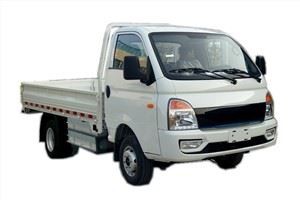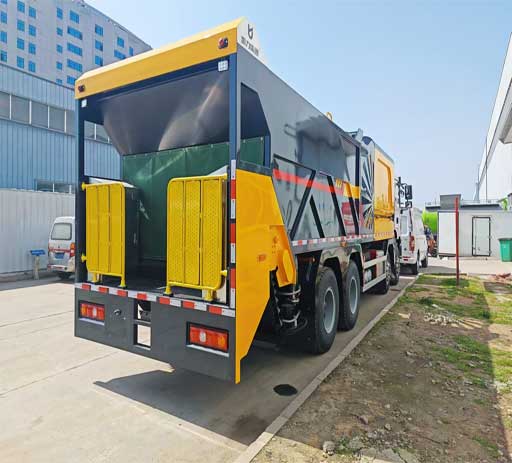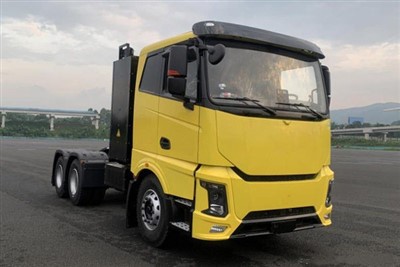Garbage Trucks Sale: The Ultimate Guide to Buying the Best Waste Collection Vehicles
Introduction
Buying a garbage truck is a significant investment for municipalities, waste management companies, and businesses involved in waste collection. Understanding the different types of garbage trucks, their features, costs, and the buying process is crucial for making an informed decision. This comprehensive guide will explore everything you need to know about garbage truck sales, ensuring you find the perfect vehicle to meet your operational needs.
Understanding Different Types of Garbage Trucks
Garbage trucks come in various shapes and sizes, each designed for specific waste collection tasks. Here, we will explore the main types of garbage trucks commonly available for sale.
1. Rear Loader Garbage Trucks

Rear loader garbage trucks are among the most common types used for waste collection. These trucks feature a large rear compartment for storing waste, with a mechanism that lifts bins from behind the truck into the compartment.
- Advantages: Efficient for residential waste collection, compact design
- Disadvantages: Limited capacity compared to front loaders
2. Front Loader Garbage Trucks
Front loader garbage trucks are designed primarily for commercial waste collection. They have large forks at the front that lift and dump large bins into the truck’s front compartment.
- Advantages: Heavy-duty and capable of handling bulk waste
- Disadvantages: More expensive and requires trained operators
3. Side Loader Garbage Trucks
Side loader garbage trucks utilize an arm mechanism on the side of the vehicle to pick up waste bins. They are ideal for urban areas with limited space.
- Advantages: High efficiency and can collect waste without the driver leaving the truck
- Disadvantages: Can be expensive and may require specialized maintenance
4. Roll-Off Trucks
Roll-off trucks are designed for transporting large containers and dumpsters. They are commonly used for construction and demolition waste.
- Advantages: Versatility in handling different waste types
- Disadvantages: Not suitable for regular waste collection
Factors to Consider When Buying a Garbage Truck
Choosing the right garbage truck involves multiple factors, including budget, features, and intended use. Below are key aspects to consider.
1. Budget and Financing
Your budget will significantly impact your options when it comes to purchasing a garbage truck. New trucks can be expensive, often ranging from $150,000 to over $300,000, depending on the type and specifications.
- Consider financing options, leasing, and potential used truck purchases.
- Analyze total cost of ownership, including maintenance and fuel.
2. Intended Use
Understanding how you plan to use the garbage truck will dictate what features are essential.
- Residential vs. Commercial Collection: Choose between rear loaders for residential and front loaders for business.
- Heavy-Duty vs. Light-Duty: Assess if you need trucks for demanding tasks or regular waste collection.
3. Truck Specifications
When evaluating garbage trucks, certain specifications should be prioritized based on your operational requirements.
| Specification | Description |
|---|---|
| Capacity | Volume of waste the truck can hold (in cubic yards) |
| Engine Power | Horsepower affecting the truck’s performance |
| Fuel Type | Diesel, gas, or electric options |
| Features | Automated collection, GPS, safety features |
4. Maintenance and Service History
Understanding the maintenance requirements and service history is crucial, especially for used trucks. Look for:
- Maintenance records and any signs of wear or past issues.
- Automated diagnostics to detect mechanical problems early.
5. Environmental Impact
With increasing regulations regarding emissions, choosing vehicles that meet eco-friendly standards is essential. Consider:
- Trucks with lower emissions and better fuel efficiency.
- Electric models that minimize environmental impact.
Where to Buy Garbage Trucks
Finding the right place to buy a garbage truck can be challenging. Here are some options available for buyers:
1. Authorized Dealers
Purchasing from authorized dealers guarantees that you are buying legitimate products with manufacturer support.
- Benefits include warranties and service plans.
- Safety features and compliance ensure adherence to regulations.

2. Online Marketplaces
Websites like eBay, Craigslist, and specialized vehicle marketplaces can offer lower prices on both new and used trucks.
- Read reviews and verify seller authenticity.
- Ensure the presence of safe payment methods.
3. Auctions
Government and industry auctions can provide great deals on used garbage trucks.
- Research auction listings thoroughly.
- Be prepared for competitive bidding scenarios.
4. Private Sellers
Buying from private sellers can sometimes yield the best prices, but it requires due diligence.
- Verify the truck’s history through services like Carfax.
- Request a thorough inspection before purchasing.
Financing Options for Garbage Trucks
1. Bank Loans
Traditional bank loans often feature fixed interest rates that offer stability throughout the loan period.
2. Dealer Financing
Many dealers provide in-house financing, simplifying the purchase process, but ensure to read the terms carefully.
3. Leasing
Leasing can be an excellent alternative to direct buying, allowing you to use the truck without the full upfront cost.
- Consider mileage restrictions and potential end-of-lease costs.
Maintenance and Care for Garbage Trucks
Proper maintenance is key to extending the life of your garbage truck and ensuring optimal performance. Here are essential maintenance tips:
1. Routine Inspections
Conduct regular inspections on all components, including brakes, lights, and engines.
2. Fluid Levels
Keep track of oil, coolant, and fuel levels to prevent operational issues.
3. Tire Maintenance

Check tire pressure and tread depth frequently. Maintain proper alignment to ensure safety and efficiency.
4. Schedule Professional Servicing
Follow a schedule for professional servicing based on manufacturer recommendations. This helps detect issues early and prolongs the vehicle’s lifespan.
Benefits of Investing in New vs. Used Garbage Trucks
When considering the purchase of a garbage truck, understanding the pros and cons of new vs. used options is key.
1. New Garbage Trucks
- Advantages: Warranty coverage, latest technology, customizability
- Disadvantages: Higher upfront costs, depreciation
2. Used Garbage Trucks
- Advantages: Lower initial cost, reduced depreciation
- Disadvantages: Potential hidden issues, limited warranty options
Future Trends in Garbage Truck Technology
The garbage truck industry is continuously evolving, with emerging technologies enhancing performance and sustainability.
1. Electrification
Electric garbage trucks are gaining traction, providing quieter operation and reduced emissions.
2. Automation
A growing trend is the incorporation of automated systems to handle waste collection more efficiently, reducing labor costs and improving safety.
3. Smart Technology
Integration of GPS and telematics allows for real-time monitoring and optimization of routes, leading to better fuel efficiency and timely pickups.
Frequently Asked Questions (FAQs)
1. What is the average cost of a new garbage truck?
The average cost of a new garbage truck ranges from $150,000 to over $300,000, depending on the type and specifications.
2. How do I determine the appropriate size for my garbage truck?
Consider your typical waste collection volumes and the types of waste you will be handling. Choose a truck capacity that matches your operational needs.
3. Are there financing options available for purchasing garbage trucks?
Yes, financing options include bank loans, dealer financing, and leasing. Research each option to find what best suits your financial situation.
4. What type of garbage truck is best for residential collection?
Rear loader garbage trucks are typically the best option for residential collection due to their efficiency in handling smaller waste bins.
5. How can I ensure that a used garbage truck is in good condition?
Request the service history, complete a thorough inspection, and, if possible, have a professional mechanic evaluate the vehicle before purchase.
6. What are the maintenance requirements for garbage trucks?
Routine inspections, monitoring fluid levels, tire maintenance, and scheduled professional servicing are essential for proper truck maintenance.
